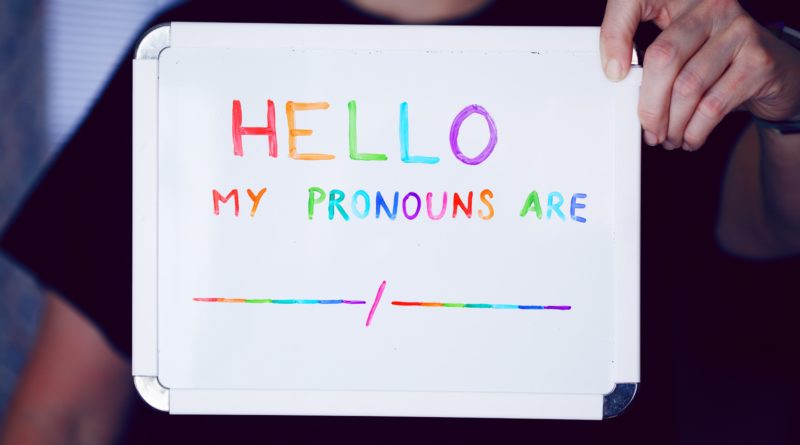OPINION: Personal pronouns bridge the gap between the gender binary
Photo courtesy of Unsplash.com

Ren Sikes
For some people, the question “what are your pronouns?” is an extremely uncomfortable one. For others, it can be the difference between oppression and inclusion.
In today’s age, more and more young people are exploring their sexual and gender identities. This creates a plethora of new problems on top of the usual ones that every blossoming teen experiences. As a nonbinary individual in the last few weeks of my first year of college, I have experienced just about every issue that plagues these young people.
I came out as bisexual during my first year of middle school. I continued to explore my sexuality all throughout high school. I began exploring my gender identity during quarantine: the one time where I had nothing better to do than to think about who I am as a person.
I am still exploring my sexual identities and what makes me feel true to myself. I understand that this journey is a long one and that you will never stop coming out. As you meet new people and build new relationships, you will have to explain yourself.
That is why personal pronouns are so important. They can make someone feel included without them having to explain why they wouldn’t be. I’m certain that everyone passed second grade English and remembers the “she, her, hers” and “he, him, his” lesson. However, one thing that our second grade teachers failed to teach us was the singular “they.” This is the one pronoun that I think is the most important to understand.
Acknowledging they/them as valid pronouns helps bridge the gap between people who fall in the gender binary and people who fall outside of the gender binary. They/them is not only the common pronouns for nonbinary individuals, but it is a simple place holder for those who aren’t entirely certain. Without the pronouns they/them, many people would be stuck in an endless cycle of “Who am I and why does this not fit?” when considering their gender identity.
Now I’m sure I look biased because I myself use they/them pronouns. That being said, I challenge you to take a trip through your email and see how many people have their pronouns in their signatures, or how many people have their personal pronouns in their social media bios.
Seeing “she/her/hers” or “he/him/his” in someone’s bio, email signature or Zoom name makes someone like me feel more comfortable expressing our pronouns. Pronouns are the foundation of speech. It is nearly impossible to say anything about someone without mentioning a pronoun.
Try it.
Pronouns are one of the most important indicators of someone’s gender identity; they go beyond physical appearance and stature. They seal the deal in some ways. That is why acknowledging them is the most important job of an ally.
So if you don’t already broadcast your pronouns to everyone and their cat, maybe considering putting them in your bio so that a shy non-binary like myself, or a blossoming trans friend can feel comfortable in your presence and know that they can trust you with their vulnerability.
For more opinion pieces, like Flyer News on Facebook and follow us on Twitter (@FlyerNews) and Instagram (@flyernews).

